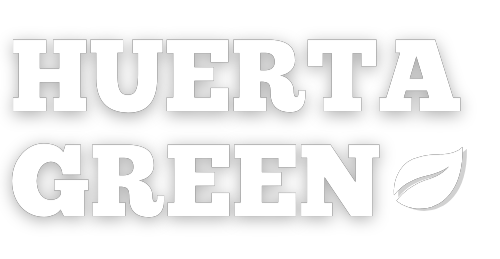Understanding the Best Composting Techniques for Organic Waste in Small Farms
Benefits of Composting for Small Farms
Composting is a fantastic way to handle organic waste on small farms. It not only helps in reducing waste but also brings several benefits to farming practices. Here’s what I’ve noticed:
- Nutrient-Rich Soil: Compost adds valuable nutrients back into the soil, promoting stronger and healthier plant growth.
- Pest Control: Healthy soil helps prevent pests. Nutrient-rich soil makes plants less likely to attract bugs.
- Environmental Impact: Composting reduces the amount of waste that goes to landfills, positively contributing to the planet.
How Composting Improves Soil Health
When I add compost to my soil, I see a significant difference. Here’s how it works:
- Enhanced Microbial Activity: Compost is full of beneficial microbes that break down organic matter and improve soil structure.
- Water Retention: Compost helps soil retain water better, reducing the need for frequent watering.
- Soil Aeration: Adding compost improves soil texture, facilitating root growth and nutrient access.
Composting Reduces Waste and Saves Money
Composting is not just beneficial for the environment; it also saves money. Here’s how:
| Ways Composting Saves Money | Details |
|---|---|
| Less Waste Disposal | Less trash means lower disposal costs. |
| Reduced Fertilizer Costs | Compost provides nutrients, reducing the need for purchased fertilizers. |
| Lower Water Bills | Improved water retention leads to lower water usage. |
In my experience, composting is a win-win: easy to start, with benefits that keep piling up.
Exploring Efficient Composting Practices for Small Scale Composting
Key Methods for Small Farm Composting
When considering composting on my small farm, I focus on methods that work best for my space and resources. One of the best composting techniques for organic waste in small farms is the hot composting method, which involves mixing green materials like kitchen scraps with brown materials like dried leaves. The heat generated accelerates the breakdown process.
Another effective method is vermicomposting, where worms break down organic waste. This technique transforms kitchen scraps into nutrient-rich compost and is a fun project to do with my kids!
For a simpler approach, bin composting is also great. A compost bin keeps things tidy and contained, making it easy to manage while deterring pests.
Choosing the Right Composting System for Your Farm
Selecting the right composting system is crucial. I consider my available space and the amount of waste I generate. Here’s a quick table to help decide:
| System | Best For | Pros | Cons |
|---|---|---|---|
| Hot Composting | Fast breakdown of materials | Quick results | Requires more management |
| Vermicomposting | Kitchen scraps and small gardens | Creates high-quality compost | Needs worm care |
| Bin Composting | Limited space | Clean and organized | Slower composting process |
I often lean towards bin composting because it fits perfectly in my small yard, keeping everything neat while providing great compost.
Tips for Maintaining Your Compost Pile
To keep my compost pile healthy, I follow a few simple tips. First, I always balance green and brown materials. Too much green can cause odors, while too much brown slows decomposition.
I regularly turn my compost to aerate it and keep the process moving. I also ensure it remains moist but not soggy—a good rule of thumb is to feel it; it should be like a damp sponge.
Lastly, I monitor the temperature. If it’s too cool, I add more green materials; if it’s too hot, I turn it more often. Keeping an eye on these factors makes my composting journey smoother.
Vermicomposting: A Unique Approach for Small Farms
What is Vermicomposting and How Does it Work?
Vermicomposting is a method that uses worms to break down organic waste. This process transforms kitchen scraps and yard waste into rich compost. The worms, mainly red wigglers, eat organic matter and produce nutrient-rich castings, which are excellent for plants.
The process works as follows:
- Worms eat organic waste: I add food scraps like vegetable peels, coffee grounds, and paper to the worm bin.
- Worm castings are produced: As the worms digest the waste, they excrete castings full of nutrients.
- Harvesting: After a few months, I can collect the castings and use them in my garden.
Advantages of Using Worms in Composting
Using worms for composting offers several benefits:
- Fast decomposition: Worms break down waste quicker than traditional methods.
- Nutrient-rich fertilizer: The castings are packed with nutrients that enhance plant growth.
- Less odor: Vermicomposting produces less smell than regular composting.
- Space-efficient: A worm bin can be set up in a small area, making it ideal for small farms.
Setting Up a Vermicomposting System on Your Farm
Setting up a vermicomposting system is easier than you might think. Here’s how I did it:
- Choose a container: I used a plastic bin with a lid to protect the worms from pests and the elements.
- Prepare bedding: I shredded newspaper and moistened it to create a cozy home for the worms.
- Add worms: I purchased red wigglers from a local supplier and added them to the bin.
- Feed the worms: I started adding small amounts of kitchen scraps, avoiding meat and dairy.
- Monitor conditions: I regularly check the moisture level and temperature to keep my worms happy.
| Step | Description |
|---|---|
| Choose a container | Use a plastic bin with a lid |
| Prepare bedding | Shred newspaper and moisten it |
| Add worms | Purchase red wigglers from a supplier |
| Feed the worms | Add kitchen scraps, avoiding meat and dairy |
| Monitor conditions | Check moisture and temperature regularly |
